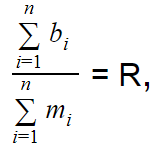The rating assigned to crypto projects is an independent evaluation of Hash#Rating experts.
The purpose of our analytical documents is to give a potential investor a general understanding of the project, its strengths and weaknesses. Ratings are designed to evaluate the overall quality and prospects of the product and to provide a systematic, independent evaluation of crypto project, helping to accurately assess its potential and possible risks.
The rating system is developed according to the specificity of crypto industry: the "youth" of the market, innovative nature of projects, lack of analogues in the traditional segment, lack of unified legal framework, and so on.
For projects at the ICO stage, we adapt the analysis and evaluation methodology to better match the research objectives.
The rating system of crypto projects consists of the following sections:
- Architecture and logic: characteristics of token emission, economy of token and mechanisms for maintaining its value and providing liquidity, consensus building mechanism, architecture of the system, licensing and legal aspects, etc.
- Functionality and software platform: performance and scalability, built-in mechanisms and functions, integration options, etc.
- Statistics: distribution on exchange platforms, price and capitalization dynamics of token, etc.
- Analysis of Road Map and White Paper: completeness and detailing of project documentation, planning horizon, the ability to monitor the work performance in due time, etc.
- Analysis of the project team and affiliated persons: the number of team, availability of sufficient competencies level required for project implementation, diversity of team composition, experience and fame of affiliated persons, their role in the project, the availability of investors, etc.
- Competitors: the presence of direct and industry competitors and evaluation of competitiveness of the crypto project under consideration, the availability of project monitoring of competition, etc.
- Fame: citation in media, social networks and thematic forums, activity of maintaining social accounts, statistics of search queries, the number of technology users, geography of spread, the availability of projects based on technology or using the analyzed product, the presence of well-known, respectable industry representatives and opinion leaders in the team.
- Trust index: the existence of default risks to investors and contractors.
The ICO rating system consists of the following sections:
- ICO and token: convenience, security and legal support for ICO procedure, distribution of tokens, economy of tokens, mechanisms for maintaining its value and ensuring liquidity, licensing and legal aspects of the project, etc.
- Product: the concept, the readiness of product and the activity of its development, the demand for the product on the market, etc.
- Statistics: distribution on exchange platforms, price and capitalization dynamics of the token, etc. (*The section can be added after the completion of ICO and the beginning of listing of the project's native token on the exchange platforms).
- Analysis of Road Map and White Paper: completeness and detailing of project documentation, planning horizon, the ability to monitor the work performance in due time, etc.
- Analysis of the project team and affiliated persons: the number of team, availability of sufficient competencies level required for project implementation, diversity of team composition, experience and fame of affiliated persons, their role in the project, the availability of investors, etc.
- Competitors: the presence of direct and sectoral competitors and evaluation of competitiveness of the crypto project, the availability of project monitoring of competition, etc.
- Fame: citation in media, social networks and thematic forums, activity of maintaining social accounts, statistics of search queries, the number of technology users, geography of spread, the availability of projects based on technology or using the analyzed product, the presence of well-known, respectable industry representatives and opinion leaders in the team.
- Trust index: the existence of default risks to investors and contractors.
Each section is rated on 10-score scale with the addition of appropriate comments on the calculation / removal of points.
Note 1:
- In case of assignment a rating of a crypto project without a native token (for example, Hyperledger Fabric), the Architecture and Logic section is rated at 14 points: (10 points (standard points transfer) - 3 (no token emission)) * 2 (architecture for clear blockchain has a larger weight in the final evaluation).
- In case of assignment a rating of a crypto project with additional anonymization options, an additional "Anonymous" factor of 3 points can be added to the "Architecture and Logic" section. Thus, the weight of "Architecture and Logic" section in the overall assessment will be 13 points.
The final score is the ratio of the arithmetic sum of points in all sections to the maximum number of points.
The rating of the crypto project is assigned in percentages according to the following formula:

where n is the number of sections in the rating,
bi- the number of points in the i section,
mi- the maximum number of points in the i section (mi= 10 except for the cases described in note 1),
R - rating as a percentage.
When analyzing and rating the Hash#Rating experts carefully study and check all the figures and facts provided by the project team, using all available sources of information, compare the pace of project development with those stated in plans, conduct analysis of industry and the competitiveness of the project. Lack of necessary information in the public access leads to a decrease in the project rating.
All analytical documents published on the Hash#Rating website are of an independent peer review and are not official recommendations for making specific project or investment decisions.
